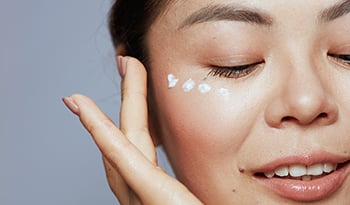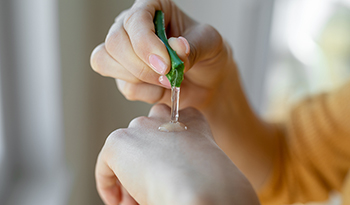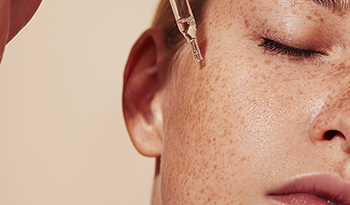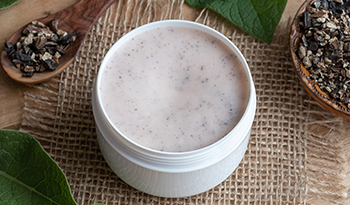I consigli di un dermatologo per mantenere morbide e sane le mani troppo lavate
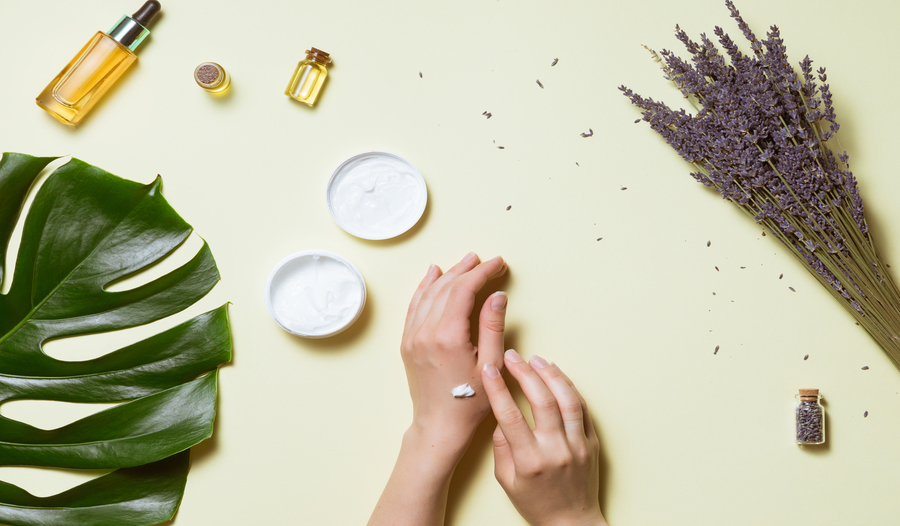
Perché lavarsi le mani è importante
Il lavaggio delle mani è un modo semplice ma incredibilmente efficace per combattere la diffusione dei germi. Un modo significativo di diffusione del virus è attraverso le goccioline (prodotte da uno starnuto, da un colpo di tosse o anche solo dal parlare) che possono essere inalate se si sta troppo vicini a qualcuno o atterrare su una superficie vicina. Un'altra persona va a toccare quella superficie e poi, senza pensarci, si tocca il viso, si strofina gli occhi, si mangia le unghie, o qualsiasi altro comportamento potenzialmente dannoso, e ora ha particelle di virus nel suo corpo.
Come funziona esattamente il lavaggio delle mani per combattere la diffusione? Cercheremo di non appesantire troppo il discorso, ma in breve, il sapone per le mani ha la capacità di disgregare i lipidi e il virus stesso ha una membrana lipidica che lo protegge (pensate che il virus sia protetto da uno strato oleoso); il sapone distrugge questo strato e poi sciacquiamo le particelle di virus nude e morenti nel lavandino. Gli esperti raccomandano di lavare le mani per 20 secondi (il tempo necessario per cantare due volte "Happy Birthday"), quindi di sciacquarle completamente e asciugarle.
Dermatite delle mani correlata al lavaggio eccessivo
Tutto questo lavarsi le mani, però, ha iniziato a comportare un effetto collaterale che i dermatologi si aspettavano: la dermatite delle mani (spesso chiamata eczema delle mani). Questo perché il sapone non solo distrugge i lipidi o gli oli delle membrane virali, ma elimina anche gli oli della nostra pelle che contribuiscono a creare la nostra barriera cutanea. L'uso ripetuto di saponi per le mani può provocare la rottura di questa barriera, portando alla fine a una pelle secca e desquamata, con la possibilità di crepe e fessure dolorose. Per alcuni pazienti più sensibili, può anche provocare un'eruzione cutanea pruriginosa con pelle secca e screpolata o chiazze di pelle squamosa rossa o marrone scuro. La dermatite delle mani non solo è fastidiosa, ma ci espone anche al rischio di infezioni batteriche, poiché la barriera è compromessa.
Gli esperti affermano che il disinfettante per le mani non è altrettanto efficace del lavaggio delle mani quando si tratta di eliminare i virus, ma è certamente meglio di niente quando non sono disponibili il sapone e il lavandino. I disinfettanti per le mani sono migliori per la pelle o per prevenire la dermatite alle mani? Nella maggior parte dei casi, la risposta è un secco no. Affinché un disinfettante per le mani sia efficace nell'eliminare i germi, deve contenere almeno il 60% di alcol (di solito alcol etilico). L'alcol contenuto nei disinfettanti ha lo stesso effetto di rimozione dell'olio dalle mani. Inoltre, oltre all'alcol, spesso contengono solventi che sono ancora più dannosi per le mani. Per questo motivo, quando è possibile, è bene lavarsi le mani.
Come lavarsi le mani in modo corretto
Allora, cosa dobbiamo fare? Per fortuna, abbiamo molte opzioni quando si tratta di tenere le mani pulite e di prenderci cura della nostra pelle. Ecco alcuni consigli per la cura delle mani :
- Per lavarsi le mani, utilizzare acqua fresca o tiepida, non calda.
Sebbene i dati suggeriscano che il virus possa essere ucciso da temperature più elevate, l'acqua calda non è in realtà necessaria per svolgere il lavoro, e in effetti porta solo a una maggiore rimozione dell'olio dalla pelle. L'acqua e il sapone sono sufficienti per risolvere il problema, quindi utilizzate acqua fresca o tiepida. - Scegliete un sapone delicato e non profumato per lavare le mani.
WSebbene sia certamente vero che vogliamo una scritta antibatterica/antivirale sui nostri detergenti per la casa e sulle salviette igienizzanti, in realtà non ne abbiamo bisogno nel nostro sapone per le mani. Secondo l'FDA, l'uso di saponi antibatterici non comporta alcun beneficio aggiuntivo, anzi è possibile che l'aggiunta di sostanze chimiche provochi ulteriori irritazioni. I profumi sono un altro ingrediente da evitare, poiché spesso contengono molte sostanze chimiche che possono aggravare la pelle sensibile. Una formulazione cremosa sarà più idratante e riuscirà comunque a svolgere il suo compito. - Evitare gli asciugatori a mano.
Le ragioni sono due. In primo luogo (e soprattutto quando si cerca di ridurre la trasmissione del virus), si possono diffondere particelle virali. Dal punto di vista della cura delle mani, l'aria secca e calda può seccare ulteriormente le mani e peggiorare l'eczema. Asciugare invece le mani con un tovagliolo di carta (lo sfregamento può irritarle maggiormente). Seguire immediatamente con una crema idratante per le mani. - Idratare dopo aver lavato le mani.
Non possiamo impedire al sapone di eliminare gli oli dalle nostre mani, ma possiamo aggiungere nuovamente gli oli e l'idratazione dopo il lavaggio.
Scegliete creme per le mani che siano dense ma a rapido assorbimento, in modo da poter continuare la vostra giornata. Se le mani sono già secche, è importante scegliere una formulazione in crema anziché una lozione. Le creme sono formulate con una maggiore quantità di oli (che è ciò che stiamo cercando di sostituire), mentre le lozioni sono formulate con una maggiore quantità di acqua. Sebbene le lozioni vadano bene per una pelle sana, in una pelle già secca possono potenzialmente portare a una maggiore secchezza quando l'acqua in esse contenuta evapora.
Gli oli e i burri agiscono come occlusivi (così come ingredienti come il petrolato) e sigillano l'umidità invece di farla evaporare. A casa, tenete un flacone a pompa di crema per le mani proprio sul lavandino dove vi lavate le mani e tenete con voi una crema idratante in formato tascabile quando siete fuori casa (cosa che dovrebbe essere ormai limitata, ma molti di noi fanno lavori che richiedono comunque di presentarsi)! Se utilizzate una crema idratante tascabile, assicuratevi di pulire periodicamente il tubetto con una salvietta igienizzante (proprio come i nostri telefoni cellulari e altri oggetti che tocchiamo spesso)! - Coccolare le mani la sera.
Se già soffrite di mani secche e screpolate, approfittate dell'ora di andare a letto per dedicare loro un po' di attenzioni. Dopo averla lavata e tamponata, spalmate una crema idratante spessa (in crema o anche in unguento, che hanno un alto contenuto di oli). (in crema o in unguento, che hanno il più alto contenuto di oli). Seguire la terapia coprendosi con guanti di cotone e dormendo con essi. Usate lo stesso paio di volte la sera. Le vostre mani vi ringrazieranno dopo qualche giorno! - Considerate un umidificatore per la casa.
Un umidificatore a casa aggiunge più umidità all'aria, il che significa che la pelle evapora meno. Possono essere utili anche in caso di congestione e secchezza nasale. - Proteggere le mani quando è possibile.
Se potete, indossate i guanti quando lavate i piatti o pulite la casa. Lo stesso vale per i lavori alimentari, come il taglio degli agrumi. In questo modo si evitano ulteriori irritazioni dovute ad altri detergenti o acidi che possono peggiorare la dermatite alle mani. - Trattare le mani infiammate con idrocortisone.
Se la pelle secca provoca prurito e bruciore, è il momento di aggiungere una crema all'idrocortisone da banco. Dopo il lavaggio, applicare questa crema, seguita dalla crema idratante più densa. Di notte, applicare l'idrocortisone dopo il lavaggio, quindi seguire con una pomata spessa e i guanti di cotone.
Se provate tutti questi consigli e continuate a soffrire di pelle secca e screpolata, chiamate il vostro medico di base o il dermatologo. Sebbene queste strategie aiutino la maggior parte delle persone che soffrono di dermatite alle mani, ci sono alcuni che possono avere altre patologie, come la dermatite da contatto o la psoriasi, e hanno bisogno di creme con prescrizione medica per affrontare il problema e calmare l'infiammazione. Non aspettate che sia troppo grave per chiedere aiuto!
ESONERO DI RESPONSABILITÀ:Questo Centro Benessere non intende fornire diagnosi...

















































































 Indice
Indice




